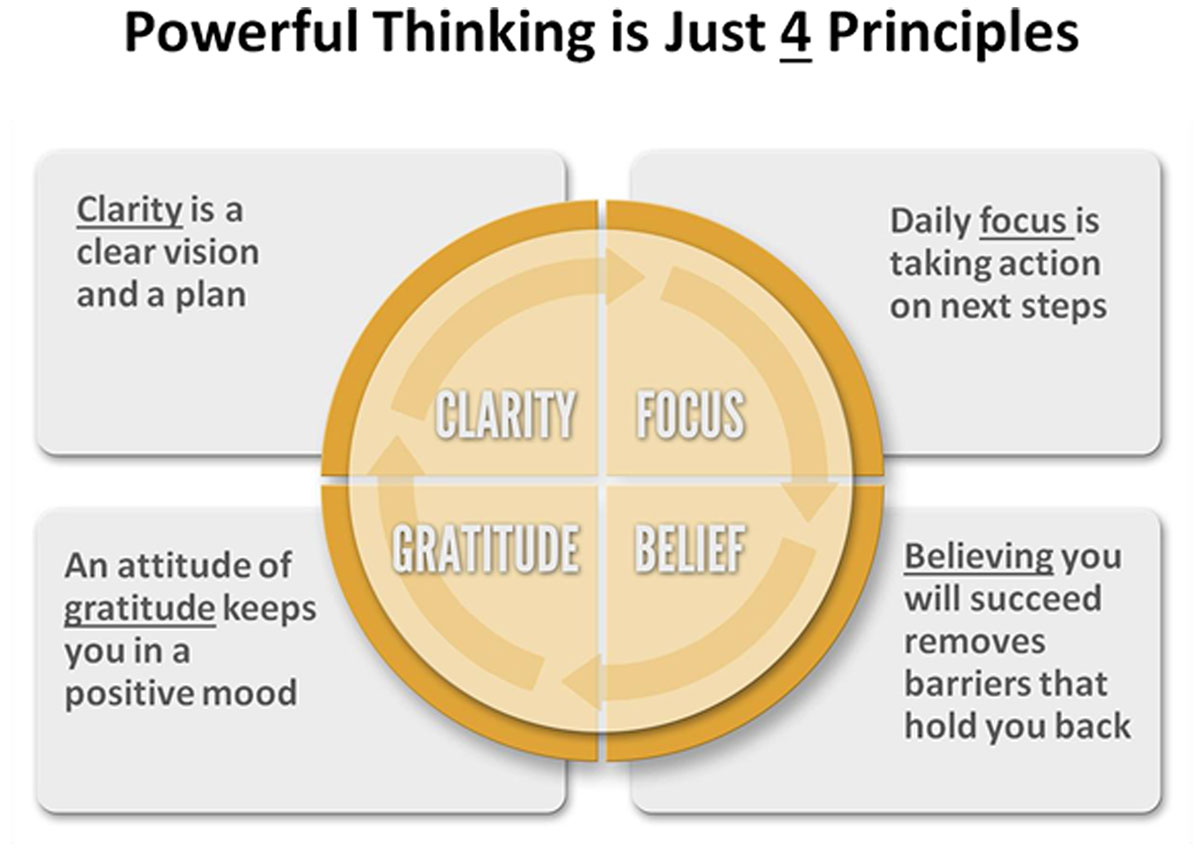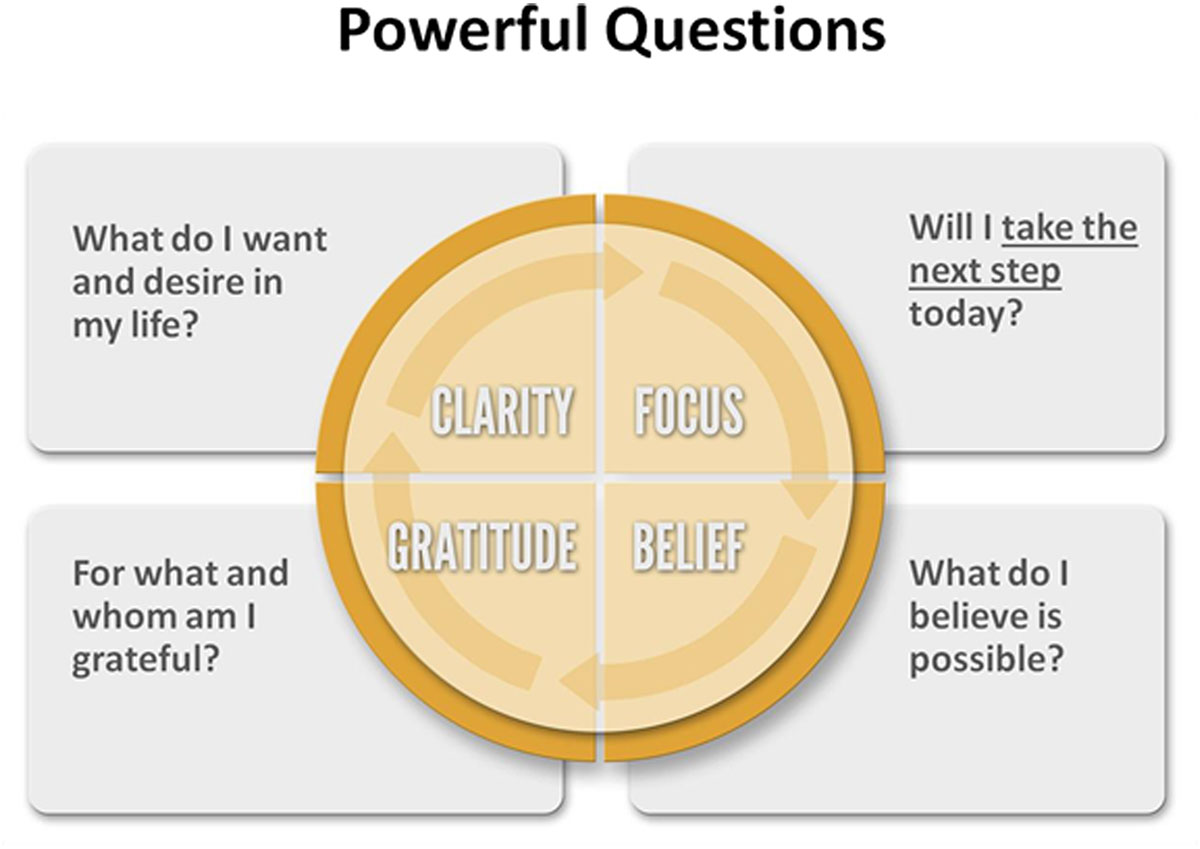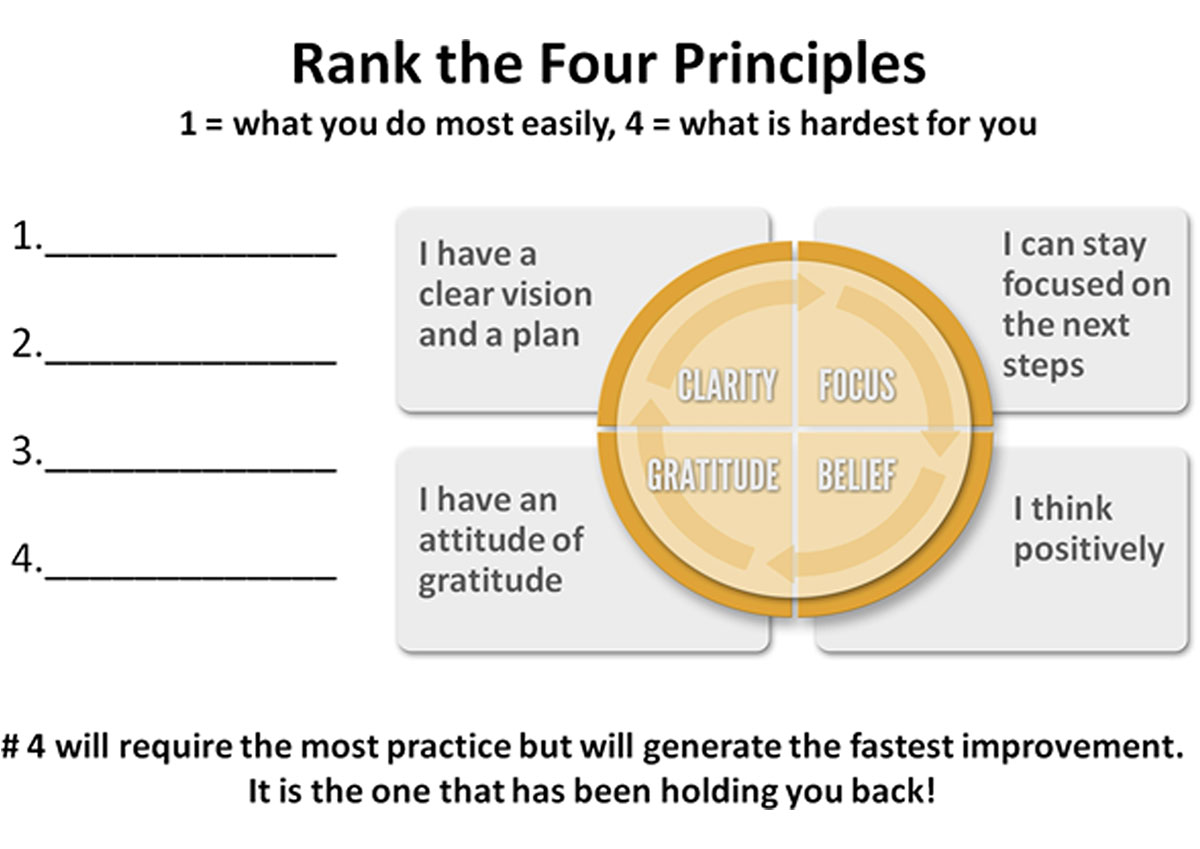
Perhaps you’re facing a health crisis, strained relationship, career dissatisfaction, addiction, loss of someone you love, an organizational breakdown, or some combination of these. Or maybe slow-burning stressors or an explosive, painful, and disruptive event hit you. These conditions challenge us in every way: emotionally, cognitively, physically, financially, spiritually, socially, relationally.
If this is all familiar to you, you’re not alone. As COVID-19 remains a threat, the new normal is that people are suffering and are looking for better heath, more time, increased energy, and financial security. Maybe negative events are unfolding in your life at this very moment. Maybe you know the longing for change that will bring you relief, but everything you’ve tried is falling short.
This article presents a daily thinking strategy that can change everything. It’s based on cognitive-behavioral science, and it makes up the foundational principles in the practice of health coaching. It includes:
Self-determinism: we can control our destiny;1
Positive psychology: changing our thoughts;2 and
Habit formation: intentional, daily repetition.3
The following case study, observations, and advice are based on coauthor Brian Krolczyk’s personal and professional experience that led him on the journey toward powerful thinking and well-being.
Case Study: A Crisis in Love
Just a few years ago, I was happily plugging along in a 16-year marriage to a beautiful wife. Our lives were filled with joy and the daily routines of raising three wonderful children. We loved our home, enjoyed meals with family and friends, and were involved in the community. We were living the good life.
I was also 30 pounds overweight with borderline hypertension. I had chronic neck pain from an injury that occurred when I was in high school. I was overextended financially, even though I was working 12-hour days. And my wife and I were repeating the same arguments that had plagued us for 15 years. Ah, the “good life.”
The disconnection between my wife and me had been widening. I felt powerless in efforts to narrow the gap. No words or deeds seemed to help. Efforts to engage professional counselors and church leaders failed. I couldn’t see the wife I remembered in her eyes. “What is this strange madness?” I thought to myself. These conditions were so unfamiliar.
We set out for dinner with friends at a local restaurant. My wife was very excited. Not me. I was tired of pretending we were a happy couple in front of others. Four couples, all friends for many years, enjoyed drinks, dinner, then more drinks. I really struggled to enjoy myself. And I couldn’t stop thinking that something else was wrong – very wrong. I just couldn’t put my finger on it.
Not surprisingly, another argument ensued. I told my wife she was irresponsible and disrespectful. She told me I was arrogant and out of touch. I grabbed my car keys and cell phone.
Idrove to our boat slip at a local lake, my favorite place to be. I left the dock and set out to clear my mind. Searching for answers, I called my wife’s best friend. After several attempts to change the subject and avoid my questions, she said, “Your wife is in another relationship. I’m sorry.” “Who is it?” I begged her to tell me. She asked me if I was sitting down. My heart began to pound.
My best friend. I learned that my wife was not only having an affair with my best friend, but she was in love with him! I stared straight ahead in disbelief.
Did I just hear what I thought I heard? I asked quietly for confirmation. I had heard correctly. “This is a big one,” I said to myself as I dropped the phone and fell to my knees. I was stunned, shocked, overwhelmed with emotion. “This is going to be devastating,” I said to myself. “It’s going to take a really long time, I’ll be broke and have to start over.” I was correct on all counts.
Three days later, I was still at the lake. Dehydrated, exhausted, and confused, a couple of good friends convinced me to see a physician. After three nights of sleep medication, some food, and lots of water, I was able to function – barely.
I moved out. Two weeks later, he moved in. I lost my wife, my daily routines, time with my children, half my income, and my now “ex-best” friend. I wasn’t sleeping. I struggled to connect with my children. I felt like a zombie parent. I found it incredibly difficult to focus on job tasks. The quality of my work significantly declined. I cried every day and had a sick feeling in my stomach that wouldn’t leave me. I was filled with anger, resentment, heartache, shame, and anxiety. I ruminated about future uncertainties.
I did all the right things. I talked about my feelings. I played with my children. I exercised to manage stress. I meditated. I attended religious activities to find and further my faith. I made new friends and tried to adjust to a new social network. I had a therapist. I spoke to my Catholic priest. I was still miserable.
I spent days combing through my psychology resources: textbooks, research, case studies. I needed to find the recipe for recovery. I noticed what was missing in my experience. I wasn’t thinking in a healthy way. I didn’t have a vision, I wasn’t focused, my faith in myself and others was shattered, and all I could think of was what I had lost.
I began changing my thinking, aligning daily thoughts with these four principles: clarity, focus, belief, and gratitude. And everything began to change, quickly, in the positive direction. I created a vision for being the best healthy, single dad possible. I created daily action steps. I told myself I believed in myself and what was possible. And I recited things and people for whom I was grateful each morning and night. I revisited these thoughts every day. And my life began to match my thoughts.
Four Principles Driving Personal Transformation
It is often at the lowest point emotionally, physically, and financially that we learn about the power of thought as an instrument for success or failure. “I was bankrupt: emotionally, financially, spiritually, and physically.”When life events and personal burdens have robbed you of energy, hope, money, love, and freedom from pain, what do you have left? Your mind and spirit.
The most successful and resilient people have something in common. They have a clear vision of where they are going. They move toward it daily. They know that they can do what they want to do. And they have a tremendous attitude about life. They are confident. They know that “everything is okay.” They are consistently grateful for the goodness around them. Clarity, focus, belief, and gratitude – this is how successful people think. This is how they access the wealth, health, and love they desire.
Clarity, focus, belief, and gratitude: These are ways of thinking that prepare one to succeed at anything. This approach, when repeated and practiced daily, can lead to a powerful change. Your own thinking generates a form of energy (personal power) and is the key to creating the change you want to see. It is so simple yet can be transformative. (See graphic, “Powerful Thinking is Just 4 Principles.”)
Your thinking is something that you do. Thinking is a health behavior, just as eating nutritious food and engaging in physical fitness are activities that can improve well-being. Healthy thinking is something you can practice daily. (See graphic, “Powerful Questions.”)
Ask yourself the following questions that align with each of the four principles:
Clarity: What do I want and desire in my life?
Focus: Will I take the next steps today (and what are they)?
Belief: What do I believe is possible?
Gratitude: For whom and what am I grateful?
You might notice that you’re neglecting one or two principles. Perhaps you’ve failed to create a clear vision or a detailed plan you love. Maybe you have difficulty focusing with all the distractions, busyness, and demands in your life. Are you harboring doubts or lacking confidence? Are you angry, sad, or fearful and having difficulty with gratitude? Only you know the answers to these questions.
Increasing Self-Awareness and Awakening to Opportunity
Here’s a quick exercise to increase self-knowledge and open yourself to opportunity. Rank the four principles from 1 to 4, with 1 being the principle at which you’re the strongest and 4 the principle at which you’re the weakest. Which one do you do most easily, which is next easiest, and so on? The principle that you rank as 4 is the one that is getting in your way. Invest some new thinking in this area, and you’ll notice a breakthrough. (See graphic, “Rank the Four Principles.”)
How can you create healthy thinking habits? Begin each day with this routine:
Think about what you desire. See it clearly in your mind.
Focus on one thing you can do today to move toward it.
State your belief in what is possible.
Express deep and specific gratitude for everything that is good in your life, and share the gratitude with someone.
Notice how you feel. Repeat this process later in the day.
Conclusion
Good things happen when we believe in possibilities. The hardest thing you will ever have to do is believe in something you want while in the presence of its absence – money when you see your bank account balance declining, love when you are alone, and health when you are broken.
You are the one in charge of your thoughts. Your head sits on your shoulders. You can decide to create the changes that you want. You can choose to focus on actionable next steps. You can change what you will believe. And you can heal your heart in a moment by recognizing the beautiful gifts all around you.
Four Principles Driving Personal Transformation



Focus on Self-Care: WisLAP Can Help
Research suggests that legal professionals sacrifice self-care for their job, which often leads to dissatisfaction in their professional and personal life, and often at the expense of their health and well-being. (See, Task Force on Wisconsin Lawyer Well-Being Report, Lawyer Well-Being: Changing the Climate of Wisconsin’s Legal Profession (Dec. 2021), available at https://tinyurl.com/t22rzna5).
If the demands of practicing law start to affect your personal time, energy levels, and mental health, give yourself permission to contact the Wisconsin Lawyers Assistance Program (WisLAP), wisbar.org/wislap.
WisLAP offers confidential well-being support to lawyers, judges, and law students. WisLAP staff are available for phone and in-person consultations, self-care retreats, mental health trainings, on-location office hours and well-being presentations. Additionally, WisLAP-trained volunteers are available for individualized peer-to-peer support upon request.
WisLAP aims to develop a culture within the Wisconsin legal community that fosters work-life balance, and destigmatizes mental illness and substance use disorders. WisLAP services are free and available to everyone in the legal profession.
For more information or to set up a consultation, please contact WisLAP:
Dr. Julia Persike, PsyD, SAC
WisLAP Manager
Phone: (608) 250-6159
Email: jpersike@wisbar.org
Amber Gilles, BSW
WisLAP Member Coordinator Phone: (608) 260-6151
Email: agilles@wisbar.org
WisLAP Can Help
The Wisconsin Lawyers Assistance Program (WisLAP) offers confidential assistance to lawyers, judges, law students, and their families who are suffering from alcoholism, substance abuse, anxiety, and other issues that affect their well-being and law practice.
WisLAP Confidential Helpline: (800) 543-2625
National Suicide Prevention & Crisis Lifeline: Dial 988; suicidepreventionlifeline.org
Endnotes
1 Edward L. Deci & Richard M. Ryan, The “What” and “Why” of Goal Pursuits: Human Needs and the Self-Determination of Behavior, Psych. Inquiry 11(4), 227 (2000). https://doi.org/10.1207/S15327965PLI1104_01.
2 R. Karmakar & A. Bhattacharyya, The Role of Gratitude and Self-esteem in Predicting Psychological Well-being, Indian J. of Positive Psych. 13(3), 207-11 (2022).
3 Anna Vogelsang, Clara Hinrichs, Lena Fleig & Ines Pfeffer, Study Protocol for the Description and Evaluation of the “Habit Coach” - a Longitudinal Multicenter mHealth Intervention for Healthy Habit Formation in Health Care Professionals, BMC Pub. Health 22(1), 1–17 (2022). https://doi.org/10.1186/s12889-022-13986-0.
» Cite this article: 95 Wis. Law. 39-42 (December 2022).
